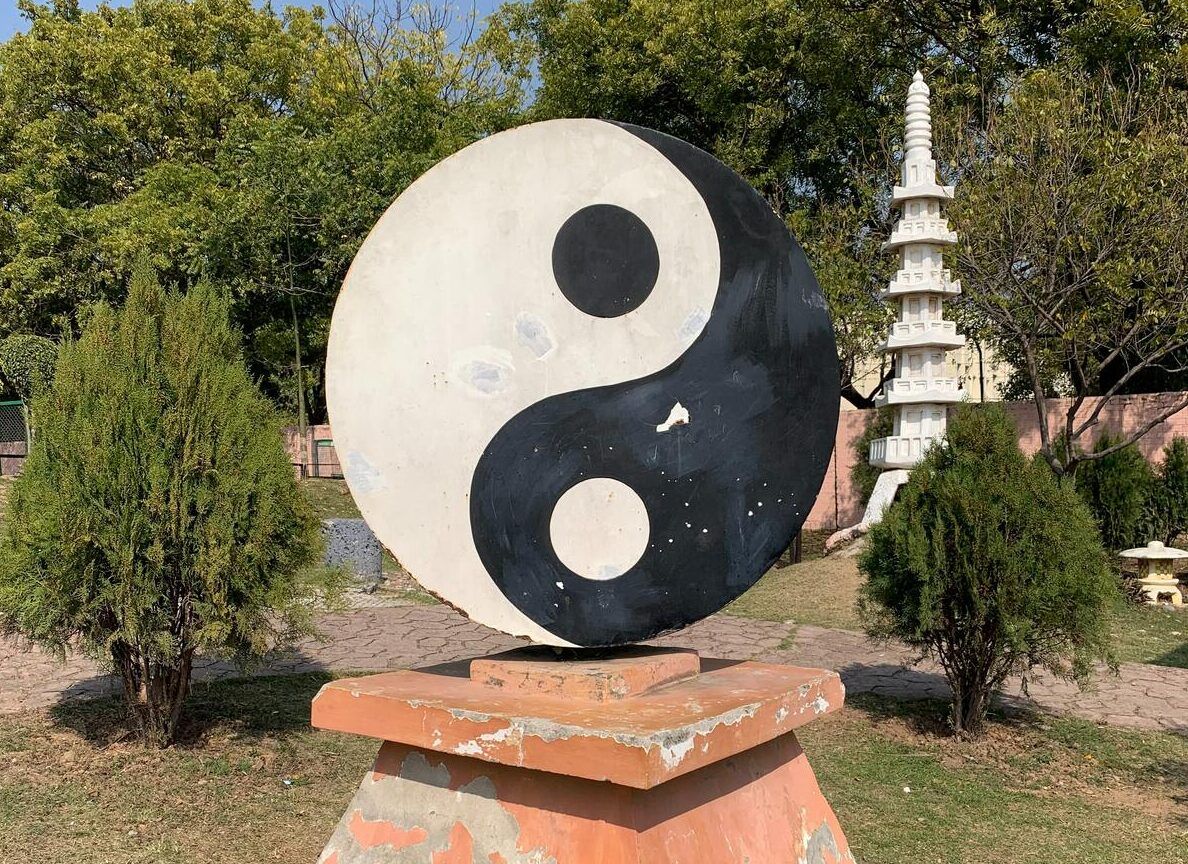You may have heard about qi (pronounced “chee”) which is a fundamental component in Traditional Chinese Medicine (or TCM for short). Qi is all manifestations of energy.
Qi is roughly translated as, “vital life force,” and some people also refer to it as chi. Based on Classical Chinese Philosophy, however, the real meaning of qi goes beyond its translation.
Qi is energy found in the universe, with all things made up and bound together by this life force. It embraces the majority of the material aspects of energy, such as the ground and even your computer to immaterial aspects, such as your emotions and thoughts. In Traditional Chinese Medicine, life is a gathering of qi, and a human being is composed of the continuous flux of all aspects of qi.
In essence, qi makes up who you are. It transforms endlessly and could change in manifestation based on your lifestyle habits and even environmental stimuli. Qi can never be destroyed but it could be altered since it is dynamic and flowing. And when there is an imbalance with qi, it could lead to health issues and other problems. Learn more about what Traditional Chinese Medicine says about qi below:
Understanding the Concept of Qi
In Traditional Chinese Medicine, qi has two main branches: the physical and insubstantial. The physical aspect of qi is also known as the nourishing component of qi, composed of the air, water, and food you consume. Meanwhile, the insubstantial aspect talks about vital fluids and energy itself that flows all throughout your body. Qi is seen as flowing in your body’s meridian points and is the basis of alternative medicines like acupuncture and reflexology. Both reflexology and the principles of qi believe that everything is interconnected.
Qi is also seen as what you take in from the world, and the latter becomes a part of who you are. The energy from the world flows in your body and moves continually within the cycle of life. Interruptions, disharmony, and imbalance in its flow are seen as the root cause of most human health issues, whether physical, emotional, or mental disturbances.

Yin and Yang in Relation to Qi
To further elucidate the concept of qi, it is vital to understand its various aspects and different manifestations. The only way to grasp qi is to understand the concept of yin and yang. In TCM, everything is relative, so things are assessed and taken as a whole. Things could only be understood in proper context by analyzing their relation to something else.
To describe the opposite manifestations of qi, the concepts of yin and yang are used. Yin is that aspect of qi that is cold, descending, solid, passive, heavy, cooling, moist, and dark. Some say this is the physical and brute side of the universe. Meanwhile, yang is that part of the universe that’s ethereal, hot, active, dry, aggressive, warming, light, hollow, and expanding.
For instance, if yin is form, material, night, and death, then yang is a function, immaterial, day, and birth. However, despite being polar opposites, yin and yang reside within each other, cannot exist outside each other, and must remain in proper balance. The yin-yang relationships are interdependent. The harmony of these elements is responsible for optimal health and wellness.
What Happens When There’s an Imbalance?
Yin-and-Yang continuously changes and constantly adjusts. The transformation of the yin-yang aspects of qi is akin to an eternal dance. When these elements are in harmony, you can expect good health and contentment in life. When there is an imbalance, whether too little or too much, you could experience illness, suffering, anxiety, and pain.
It is essential to balance yin and yang to maintain the proper flow of qi in the body. With imbalance, illness could arise with varying symptoms based on the aspects of qi affected. Take a look at the potential issues caused by yin-yang disharmony and qi imbalance:
- Deficiencies: In TCM, qi deficiency could take many forms. For example, it could be due to a lack of sleep, water, fresh air, food, or other physical components that the body needs to function. (Note that these elements are part of yin-yang interplay.) Moreover, it could also be due to insufficient mental stimulation or lack of love and social interactions.
- Excess: Having excess qi is just as destructive and detrimental to your health as a deficiency. Excess usually manifests due to exposure to environmental toxins like free radicals from polluted air or contaminated water. It could also arise from overindulgence in food, excessive exertion, stress, and negative emotions. The perfect example of excess is cancer or an overabundance or overgrowth of cells.
Working to find equilibrium with yin-yang and balancing qi is at the core of Traditional Chinese Medicine. Healing modalities like acupuncture, tui na, facial acupressure, and reflexology, hope to address deficiency or excess qi. On top of that, there are guidelines for both TCM practitioners and patients that promote harmony in yin and yang to create and circulate the right amount of qi in the body to sustain good health. It’s important to know how to restore and regulate your qi to avoid both deficiency and excess.

The 4 Types of Qi
To avoid illness and disharmony, it is crucial to maintain a proper balance of all the various forms of qi. According to Acupuncture and Massage College, you can find four types of qi in the body that affect your system. These qi types are the following:
- Parental: Yuan qi lives up to its name since it is inherited from your parents from the moment of conception. After conception, the kidney stores parental qi.
- Pectoral: When you breathe, you produce pectoral or zong qi. It is dubbed pectoral qi since it is stored near the pectoral muscles in the chest.
- Nutritional: Ying qi or nutritional qi is acquired from the foods you eat. This energy is responsible for circulating nutrients throughout your body.
- Defensive: Wei qi holds a big responsibility since it protects and defends the body from illness. This is the yang component of nutritional qi since it is also derived from food. However, apart from nourishing the body, it also holds another purpose which is protection.
All of these elements work together to help with proper body function. Qi is the vital life energy that’s crucial for growing and maintaining proper organ development, keeping meridians open, and maintaining good xue or blood. Moreover, qi regulates body temperature, keeps fluids in place, and transforms nutrition into different subsets for the cells to facilitate normal organ functions. For example, a qi deficiency could result in cold limbs, dysmenorrhea, or difficulty in conception. When there’s a qi imbalance, the body’s functional entities will be adversely impacted and manifest as illness.
In contrast, people with harmonious qi could readily fend off a virus or infection and quickly recover after injury or illness. In general, people with good qi tend to have better endurance, healthier gut fauna, good digestion, stronger immunity, good sleep, and a calmer state of mind. For this reason, Traditional Chinese Medicine finds a way to balance qi so that your body could maintain homeostasis or the ability to effectively regulate the internal environment to foster excellent health.
If you’re concerned about achieving optimal health, balancing your qi is key. Apart from alternative medicine such as acupuncture or utilizing natural remedies, consider taking a CircleDNA test. Results from this easy at-home DNA test will reveal your genetic health and disease risk profile, along with your ancestry and other genetic traits, to get a clearer understanding of your parental qi. Moreover, you will get hundreds of reports like nutrition plans and exercise suggestions that are based on your genetics. You could use these DNA insights to rebalance your qi for optimal health and wellness.






